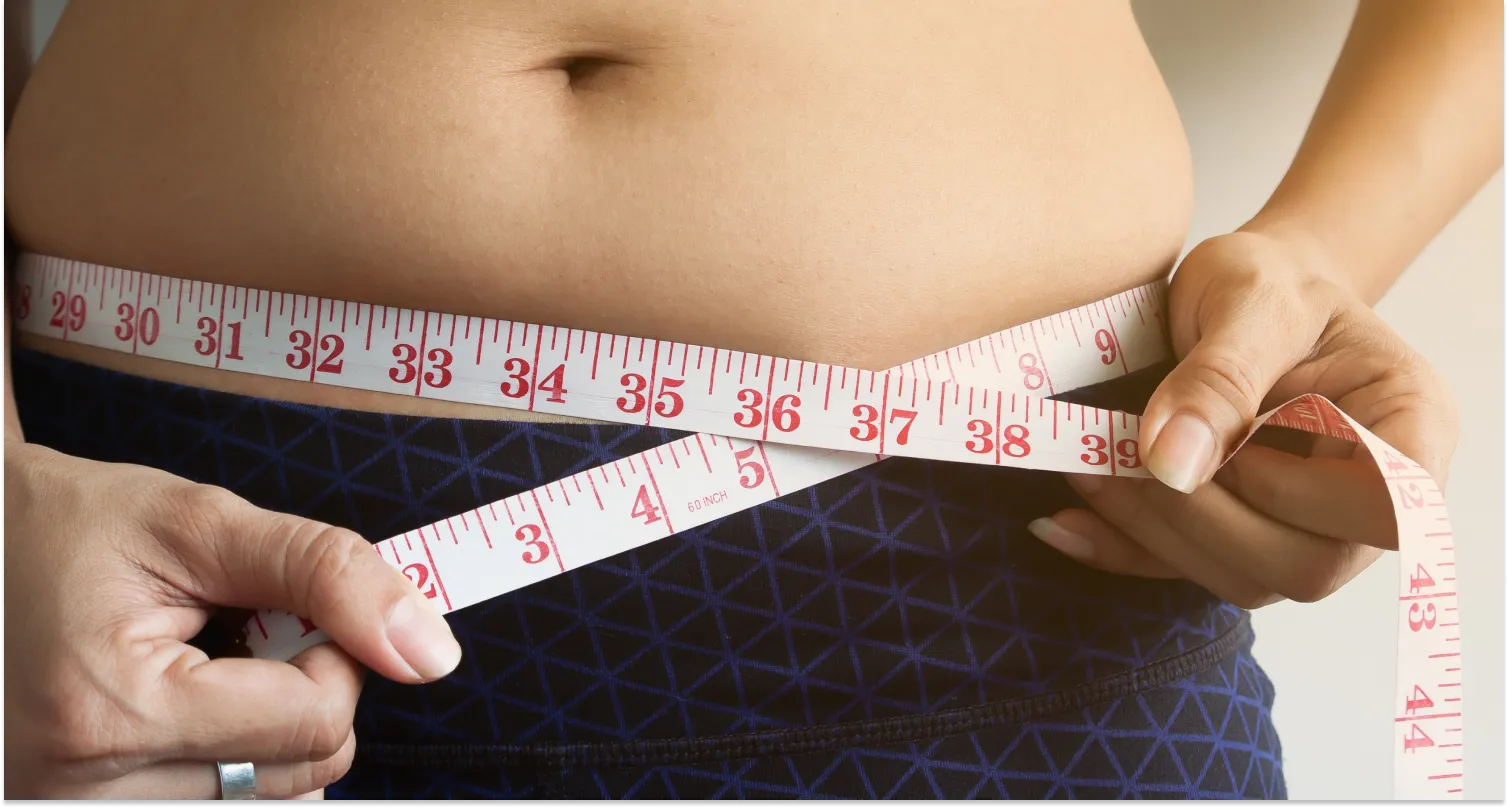Quick Summary:
- Why Women Over 40 Are at Higher Risk: Hormonal shifts, metabolism changes, and lifestyle factors increase diabetes risk after 40.
- The Most Common (but Often Overlooked) Signs of Diabetes in Women Over 40
Signs like fatigue, frequent urination, blurry vision, and weight changes may be signs of diabetes, not just aging. - Symptoms Unique to or More Common in Women: Women may also experience frequent yeast infections, sexual health changes, and mood shifts due to high blood sugar.
- You're Not Alone: Many women experience these changes. You're not imagining it, and you're not alone.
After 40, a lot changes. Energy levels dip, sleep gets weird, and your body starts doing things it didn't used to. It's easy to chalk it all up to aging, stress, or hormones.
But sometimes, those small changes are actually your body trying to tell you something more serious, like diabetes.Type 2 diabetes often creeps in quietly, especially in women over 40. You might feel more tired than usual, notice a few extra pounds that won't budge, or start waking up at night to use the bathroom more often.
Nothing too alarming at first. But over time, these signs can build, and if left unchecked, diabetes can affect everything from your heart to your eyesight to your nerves.
The good news? You can catch it early. In this article, we'll walk through the common (and often overlooked) signs of diabetes in women over 40, why this stage of life puts you at greater risk, and what you can do about it.

Why Women Over 40 Are at Higher Risk
If you've hit your 40s and feel like your body is operating on a completely different setting than it did in your 20s or 30s, you're not imagining it.
This stage of life often brings major hormonal and metabolic changes that can quietly increase your risk for type 2 diabetes. Here are six reasons women over 40 are more vulnerable to developing diabetes, even if they've always considered themselves relatively healthy.
Hormonal Shifts
One of the biggest changes in your 40s is the gradual shift into perimenopause and, eventually, menopause.
As estrogen and progesterone levels fluctuate, so does your body's sensitivity to insulin, the hormone that helps move sugar from your bloodstream into your cells for energy. When insulin isn't working as efficiently, your blood sugar stays higher than it should, increasing your risk for insulin resistance and, over time, type 2 diabetes.
Weight Gain (Especially Around The Midsection)
Many women notice that after 40, weight creeps on more easily and tends to settle around the belly. This abdominal fat is a cosmetic concern, metabolically active, and closely linked to insulin resistance. That means your body has to work even harder to manage blood sugar levels, increasing your risk of developing diabetes [1].
A Slower Metabolism And Muscle Loss
As we age, we naturally lose muscle mass unless we actively work to maintain it. Since muscle is where a lot of glucose is burned for energy, less muscle means less effective blood sugar control. Pair that with a slowing metabolism, and your body's ability to keep blood sugar stable gets even trickier.
Lifestyle Habits Catching Up
By your 40s, long-standing habits like a sedentary job, high stress levels, lack of sleep, or a carb-heavy diet may start showing their effects. Even if you were able to “get away with it†in your younger years, your body becomes less forgiving over time.
Other Health Conditions That Add To The Risk
Many women over 40 start to develop or manage other conditions like high blood pressure, high cholesterol, or polycystic ovary syndrome (PCOS), all of which are linked to a higher risk of type 2 diabetes. Even having had gestational diabetes during pregnancy even years or decades ago raises your odds [2].
Stress And Sleep
Let's not forget stress and sleep, two things that are often in short supply during the busy midlife years. Chronic stress raises cortisol levels, which can drive up blood sugar.
Poor sleep messes with hunger hormones and can lead to overeating and fatigue-induced inactivity, both of which compound diabetes risk.
Remember, all of these factors don't mean that diabetes is inevitable after 40. Not even close. But understanding what's going on behind the scenes gives you the power to take action early. Your 40s can absolutely be a healthy, vibrant chapter but it just might take a little more intentional care.
The Most Common (but Often Overlooked) Signs of Diabetes in Women Over 40
Diabetes doesn't always announce itself with flashing lights. In fact, many women brush off the early signs as “just getting older†or “being tired from life.†But when you know what to look for, you can spot the clues and get ahead of it.
Here are some of the most common and often overlooked signs of diabetes [3] in women over 40.
1. Constant Fatigue, Even After Rest
Sure, life is busy, and most of us feel tired sometimes. But diabetes fatigue hits differently. It's a deep, ongoing tiredness that doesn't go away with a good night's sleep. When your cells can't access glucose for energy (because insulin isn't doing its job), you feel drained physically and mentally.
2. Frequent Urination And Thirst
You might start noticing that you're constantly thirsty and making extra trips to the bathroom, especially at night. High blood sugar causes your kidneys to work overtime to filter and flush out the excess glucose, which leads to increased urination. That, in turn, makes you thirsty. It becomes a frustrating cycle.
3. Blurry Vision
If your vision seems to go in and out of focus, or your glasses suddenly don't seem to work as well, it could be more than age-related changes. High blood sugar can cause swelling in the lenses of your eyes, leading to blurry vision. It usually improves once blood sugar levels stabilize, but it's a red flag worth noticing.
4. Slow-Healing Cuts And Frequent Infections
If it's taking longer than usual for a paper cut, scratch, or small wound to heal, or if you keep getting infections (like UTIs or skin infections), your blood sugar might be interfering with your body's natural healing process.
5. Unexplained Weight Loss Or Weight Gain
While most people associate diabetes with weight gain, some women with undiagnosed diabetes experience unexplained weight loss. That's because the body starts breaking down fat and muscle for energy when it can't use glucose properly. On the flip side, insulin resistance can also cause weight gain, especially around the belly.
6. Tingling Or Numbness In Hands And Feet
This one often gets dismissed as sleeping “funny†on your arm or leg, but if you're frequently experiencing tingling, numbness, or a burning sensation in your hands or feet, it could be a sign of nerve damage from elevated blood sugar levels (a condition called diabetic neuropathy).
7. Mood Swings And Brain Fog
Blood sugar swings can impact your mood and mental clarity, too. You might feel more irritable than usual, have trouble focusing, or experience memory lapses. While these changes can be subtle, they're still important signals.
These symptoms may not feel urgent at first and some may seem mild or easy to explain away. But if you're noticing more than one of these changes, or they're getting worse over time, it's worth having a conversation with your doctor.
Symptoms Unique To Or More Common In Women
While diabetes affects both men and women, some symptoms are either unique to women or tend to show up more often or more intensely in women, especially after age 40. Because these symptoms often overlap with hormonal shifts or general aging, they're easy to ignore. But they matter, and they're worth paying attention to.
1. Frequent Yeast Infections Or UTIs
High blood sugar creates an ideal environment for yeast to grow, particularly in the warm, moist areas of the body. This means women with undiagnosed or uncontrolled diabetes may notice more frequent vaginal yeast infections, as well as urinary tract infections (UTIs). If these are becoming a regular issue, it could be a sign your blood sugar is too high.
2. Vaginal Dryness Or Discomfort
Hormonal changes from perimenopause or menopause already affect vaginal health, but diabetes can make things worse. Poor circulation and nerve damage can lead to vaginal dryness, irritation, or discomfort during intimacy. These symptoms can impact both physical and emotional well-being, but are often dismissed or chalked up solely to aging.
3. Changes In Sexual Desire Or Response
Reduced libido, difficulty reaching orgasm, or even pain during sex can all be linked to diabetes. Blood sugar imbalances can interfere with blood flow and nerve sensitivity, both of which play big parts in sexual response. It's not all in your head, and it's definitely not just about getting older.
4. Polycystic Ovary Syndrome (PCOS) Link
If you've been diagnosed with PCOS, you may already know there's a strong connection between PCOS and insulin resistance. Women with PCOS are more likely to develop type 2 diabetes, and that risk increases with age. If you had irregular periods, excess hair growth, or fertility struggles earlier in life, keep an eye on your blood sugar as you get older.
5. Depression And Anxiety
Mood disorders are more common in women, and studies show a strong link between diabetes and mental health, especially in midlife women. Blood sugar fluctuations can amplify symptoms of depression and anxiety. And the reverse is true, too: Chronic stress and low mood can make managing health and eating habits harder, creating a vicious cycle.

When To Speak To A Healthcare Professional
If you're noticing any of the symptoms we've talked about, especially fatigue, increased thirst, frequent urination, or recurring infections then it's time to check in with your doctor. Even if the changes feel mild, they're worth mentioning.
You should also see a doctor if:
- You have a family history of diabetes
- You've had gestational diabetes during pregnancy
- You're experiencing unusual weight changes or numbness in your hands/feet
- Your mood or energy levels have shifted dramatically
Catching diabetes early makes it much easier to manage and can help prevent complications down the road. So if something feels “off,†trust your gut. You know your body best.
Final Thoughts
Your 40s are a time of transformation physically, emotionally, and hormonally. It's a season when your body might whisper changes before it shouts them.
The signs of diabetes in women over 40 can be subtle and easy to shrug off: tiredness, mood changes, weight shifts, or extra trips to the bathroom. But those small signs can be your body's way of asking for help.
The good news? You don't have to navigate this alone. Understanding your risk, recognizing the symptoms, and taking action early can make all the difference in protecting your long-term health and living fully.
If you're seeing yourself in any of these signs, don't wait. A simple conversation with your healthcare provider could be the first step toward feeling like yourself again. And if you want resources built specifically for women navigating this phase of life, Fem Excel is here for you.
At Fem Excel, we're passionate about helping women over 40 take control of their health with expert guidance, relatable support, and the kind of information that's easy to understand and actually useful.
Visit Fem Excel to learn more, connect with a community that gets it, and start advocating for the healthiest, strongest version of you.
References:
[1] Sasai H, Sairenchi T, Iso H, Irie F, Otaka E, Tanaka K, Ota H, Muto T. Relationship between obesity and incident diabetes in middle-aged and older Japanese adults: the Ibaraki Prefectural Health Study. Mayo Clin Proc. 2010 Jan;85(1):36-40. doi: 10.4065/mcp.2009.0230. PMID: 20042559; PMCID: PMC2800296.
[2] Diaz-Santana MV, O'Brien KM, Park YM, Sandler DP, Weinberg CR. Persistence of Risk for Type 2 Diabetes After Gestational Diabetes Mellitus. Diabetes Care. 2022 Apr 1;45(4):864-870. doi: 10.2337/dc21-1430. PMID: 35104325; PMCID: PMC9016728.
[3] Ramachandran A. Know the signs and symptoms of diabetes. Indian J Med Res. 2014 Nov;140(5):579-81. PMID: 25579136; PMCID: PMC4311308.






